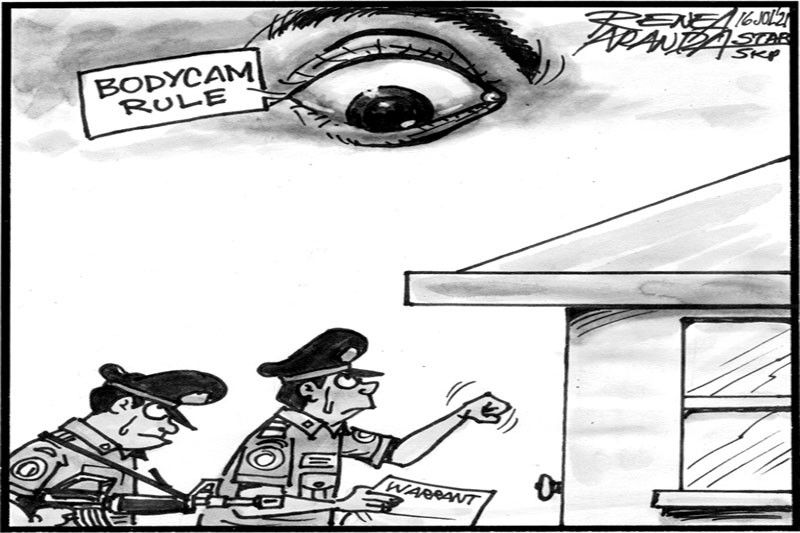EDITORIAL - Preventing abuse

Human rights advocates have hailed the Supreme Court ruling requiring the police to wear body cameras or at least an alternative recording device when serving arrest and search warrants, and even when carrying out warrantless arrests. At the same time, the SC revoked a 2004 resolution that allowed judges of the regional trial courts in Manila and Quezon City to issue such warrants to be served outside their areas of jurisdiction.
The ruling, if fully implemented, is expected to prevent the abuse of state power, such as in the killing of teenagers Kian delos Santos, Carl Arnaiz and Reynaldo de Guzman allegedly for fighting back in police anti-drug operations. Last March 7, simultaneous operations in the Calabarzon by military and police armed with search warrants issued by Manila judges led to the fatal shooting of nine activists accused of being members of the New People’s Army.
As in the enforcement of laws, however, the devil will be in the enforcement of the SC ruling. What happens if the body cameras or alternative devices break down or run out of battery – whether in reality, or made up by law enforcers? Also, if there are 20 raiders swooping down on a house, can two cameras cover all the action?
The SC has pointed out that the use of body cameras can also facilitate law enforcement, by providing evidence in court that can settle conflicting versions of events during police operations.
Judicial micromanagement of law enforcement, however, can also pose problems. Philippine National Police chief Gen. Guillermo Eleazar, who supports the transparency arising from the use of body cameras, is nevertheless concerned about the impact of the ruling particularly on warrantless arrests. Citing the PNP’s lack of the required devices, Eleazar is also appealing for contributions from the private sector or local government units.
Eleazar has explained that allowing judges to issue warrants for areas outside their jurisdiction is meant to prevent the subjects of the warrants from being tipped off about an impending arrest – for example a mayor suspected of drug trafficking who personally knows the local judges and prosecutors.
The SC move is a welcome first step in putting an end to abuses in the exercise of state power. But it will be most effective with proper fine-tuning, balancing the interests of the public and law enforcement.
- Latest
- Trending


























